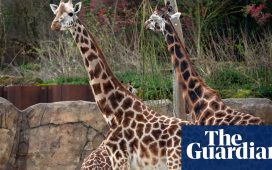These shocking new photos reveal the hidden cost behind the world’s most expensive coffee.
The specialty coffee in question is Kopi Luwak, which some enthusiasts pay as much as £80 for a cup.
It is somewhat repulsively made by an animal called a civet cat eating coffee beans and pooping them out.
The wild cats live in tropical forests across Southeast Asia and supposedly choose the juiciest coffee cherries to eat, but as they can’t digest the stone – the coffee bean – it gets left behind in the poop for eager farmers to pick up and roast into a ‘luxurious’ brew.
However, a surge in demand has seen this traditional method replaced with civet cats being trapped in cages and force-fed coffee beans.
Activists Amy Jones and Paul Healey, from Moving Animals, uncovered horrific conditions at a farm in Dalat, Vietnam.
Unable to cope with captivity, the civets are driven to self-mutilate, chewing their tails down to the bone in anxiety and boredom.
Disturbing footage shows the cats licking their painful, raw tails inside the cramped cages.
Amy said: ‘Across Asia, caged civets are being kept in appalling conditions just to produce an expensive cup of coffee.
‘Animals in captivity are denied their freedom and many exhibit abnormal behaviour to deal with the stress and anxiety.
‘It was heartbreaking to see these civets chewing on their already raw and tender tails.
‘I can’t even imagine the pain they’re in, both physically and psychologically.’
Despite the cruel conditions at farms like these being well-documented, the ‘cat poop coffee’ industry is still booming.
Travel companies including Expedia and others still offer Kopi Luwak coffee tours in Vietnam and Bali.
Paul added: ‘When companies like Expedia advertise these coffee tours the last thing you think of is the animals being in that much suffering.’
Moving Animals is now calling on travel companies to ‘stop profiting from this cruel trade’, and advising tourists to avoid the tours while travelling in Asia.
A spokesperson for Expedia said they will look into the allegations.
They told Metro.co.uk: ‘As the world’s travel platform, we play an integral role in educating travellers about wildlife tourism so they can make informed decisions on how they travel and interact with the animals on our planet.
‘Therefore, we have taken steps to remove certain wildlife interactions from our sites not only in reaction to questionable and unsafe practices but in reaction to feedback from our travelers.
‘And as this cannot be done alone, we continue to work with five global, industry-leading wildlife and animal protection groups to grow our Wildlife Tourism Education Portal.’



















